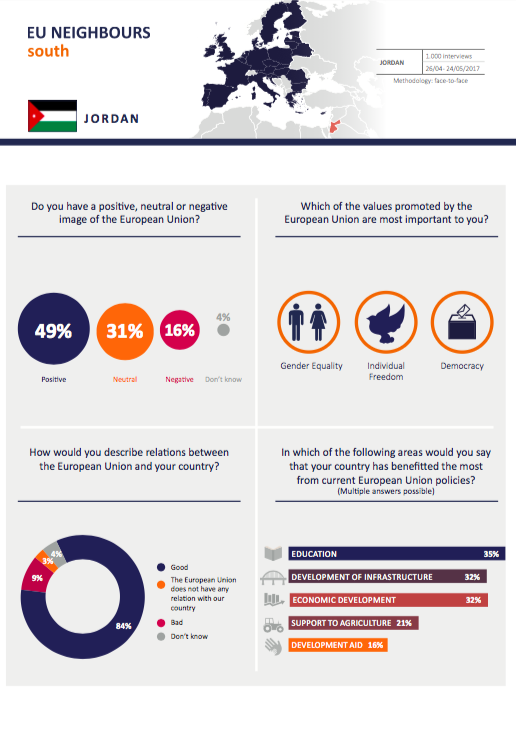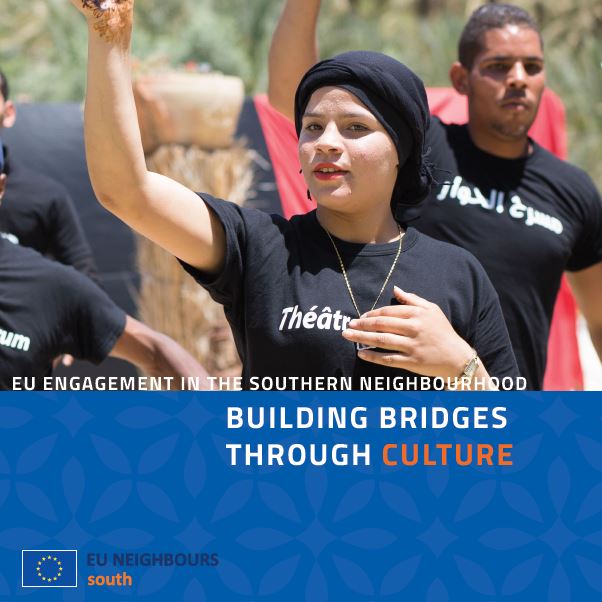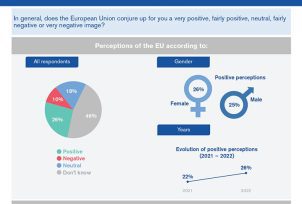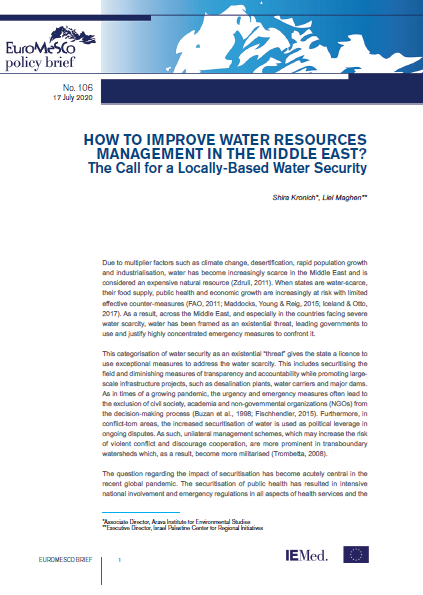Opinion Poll 2017 Jordan (factsheet)

Most Jordanians think EU contributes a lot to development, new poll finds
An overwhelming majority of Jordanians feel their country has good relations with the European Union, and almost three out of four say EU support contributes a lot to development in the country, with 83% saying EU financial support to the Kingdom is effective. These are just some of the findings of the latest annual opinion poll in Jordan, published by the EU Neighbours South project.
The survey – part of a wave of opinion polls carried out in seven southern Mediterranean partner countries – was conducted in Jordan from April-May 2017, with 1,000 people consulted in face-to-face interviews. Respondents were asked about their general perceptions of the EU and the values with which it is associated, about EU relations with their country, and the impact of EU financial support. The surveys also look at preferred sources of information, how people feel about their personal situation and the situation in their country, and their expectations for the future.
In general, Jordanians stood out as more positive in their perceptions of the EU than the regional average both of the four Mashrek countries (Jordan, Lebanon, Palestine and Israel), and the three Maghreb countries (Algeria, Morocco, Tunisia).
Asked to describe relations with the EU, 84% said they were good, well above the average of 64% in the Mashrek (76% in the Maghreb). Seventy-four per cent of those asked saw the EU as an important partner, with sufficient common values to cooperate (also 74%); another 74% felt EU support contributed a lot to the development of Jordan, and 83% said EU financial support was effective. A further 70% said the EU brought peace and stability in the region.
In more general terms, 49% of those asked had a positive image of the EU, compared to the Mashrek average of 44% (Maghreb 62%), while 31% had a neutral image and just 16% a negative image. The values most frequently associated with the EU were individual freedom, democracy, and equality between men and women; those least associated with the EU were solidarity, and an absence of corruption.
Jordanians feel EU support has contributed the most in the areas of education (35%), development of infrastructure (32%) and economic development (32%), and are keen for the EU to play an even greater role in education and economic development.
Television – both public and private – remains by far the main source of information for news in Jordan (cited by 70% and 59% of respondents respectively), followed by social media (54%), the Internet (41%) and public radio (29%). Readership of the written press is weak, with just 19% citing public press and 5% reading privately owned newspapers (compared to a regional average of 21% and 17% per cent respectively).
Jordanians are generally satisfied with their lives (58%, compared to an average of 65% for the Mashrek, and 79% for the Maghreb). But they are worried about the economic situation in their country (73% feel it is bad, compared to 61% in the region), and most (54%) are afraid that it will get worse in the next 12 months. A third also think their life in general will get worse (31% think it will get better), while 34% think the financial situation of their household will get worse.
The EU Neighbours South regional overview report and factsheets are available here.
To find out more about EU – Jordan cooperation and partnership, go here.
Latest Publications






























 Syria
Syria 



